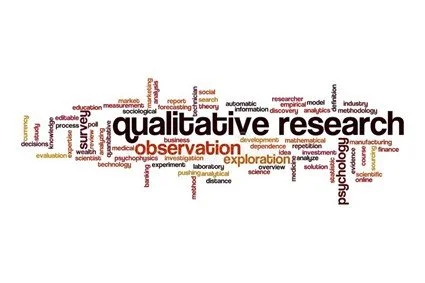On May 7th we hosted a webinar in our How to Do Research and Get Published series. This webinar was centered around the topic ‘Research in a digital world’ with members and researchers from the Center for Advanced Internet Studies College (CAIS) in Bochum, Germany. As we didn’t have time to answer all the excellent questions posed by our live attendees, this blog post, contributed by our panel and our editorial team, hopes to further shed light on some essential topics related to researching in a digital world.
Read MoreConsider a tree being perfectly reflected in a pool of still water. If the water is rippled, even slightly, the image is disrupted. However, if the water remains still, while the image remains unchanged, the pool of water can become stagnant. By analogy, what ripples have we experienced within education from a micro to a macro level in recent years? The Covid-19 pandemic, the cost-of-living crisis, global conflict, technological advancement, and so forth. Consider how such changes have affected the students we work with? Yet without such ripples, the world of education could stagnate. Consequently, change is inherent within education.
Read MoreSage is adapting to the rapidly changing nature of the open access publishing landscape and evolving to better serve the needs of researchers, but throughout, we continue to be a publisher you can trust. Together, we can maximize the potential of you research and make a positive impact society.
Read MoreThis blog offers advice on how to maintain wellbeing and address bias in research as a PhD candidate, as well as some broader discussion of how identity and privilege factor into this work.
Read MoreUnlike qualitative studies that test several aspects simultaneously and adapt easily, quantitative research aims to measure something. It gathers data about a set of variables and focuses on testing one central idea. But, if something goes wrong, we may change the whole study.
Read MoreUsing social media platforms is a great way to promote your research on your own, but it can be difficult to figure out which platform is best for your goal. You could be interested in your content reaching a lot of people, discussing ideas with peers, or building a community of researchers. Knowing which platform is the best for you will help you save time and energy for more research endeavors.
Read MoreOn December 8, we are hosting the next How to Do Research and Get Published webinar, titled ‘How to create a research agenda and develop your personal academic brand.’
Read MoreIn this live webinar, a group of Sage journal Editors present lightning talks on their DEI journal activities, followed by a Q&A.
Read MoreBeyond the doom and gloom of AI taking over peer review and the excitement of how this technology could transform scholarly publishing, this peer review week I take stock of how peer review could work in future. The focus of this article is not to discuss the merits and demerits of each mode of peer review but to instead look beyond the operational possibilities of peer review and how these changes can benefit research communities.
Read MoreSage’s ever-evolving peer review processes are adapted to be robust and reflect the latest industry standards. We are committed to ensuring that authors feel confident and well-informed when submitting their manuscripts to our journals. We’ve therefore highlighted 7 helpful tips authors should keep in mind when submitting their manuscripts.
Read MoreExplore how AI and Large Language Models are affecting the future of peer review.
Read MoreJoining the editorial board of an academic journal might seem unattainable for early career researchers – but as Alejandro Ortiz-Hernández tells us, getting involved with a journal is a great way to develop new skills and grow your career. Here’s what he had to say.
Read MoreIt is normal to feel anxious when thinking about publishing, especially as a PhD Candidate or an Early-Career-Researcher.
Read MoreConsidering becoming a reviewer or getting more involved with peer review? SAGE is pleased to announce our webinar program focused on the academic reviewing landscape for our global audience.
Read MoreIt often feels like quantitative researchers are able to analyse complex data sets using neat tests whereas hundreds of hours of qualitative data can feel overwhelming and messy. Using multiple coders to analyse data and present the findings in succinct but thorough ways may help.
Read MoreGetting research in front of a policy maker is a goal for many authors. This can be the difference between writing an article that is read only by a few academics in your field and one that could reach a wider audience and generate change. These 10 tips will help you build your brand and the reach of your scholarship, with the goal of finding your position within the wider context of your research area and leveraging change.
Read MoreEven though qualitative research is more respected nowadays, it is still seen in some academic circles just as a starting point in research. We still live in a world where quantitative approaches are dominant and considered more robust for relying on numerical or measurable data.
Read MoreAs the year comes to an end, we’re sharing the most-read articles this year, featuring contributions from authors from a wide range of disciplines, from publishing advice and research integrity to ethnographic reflections.
Read More

















